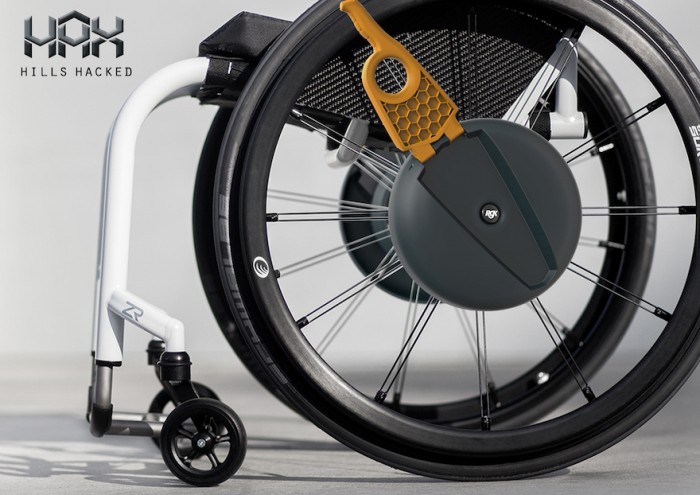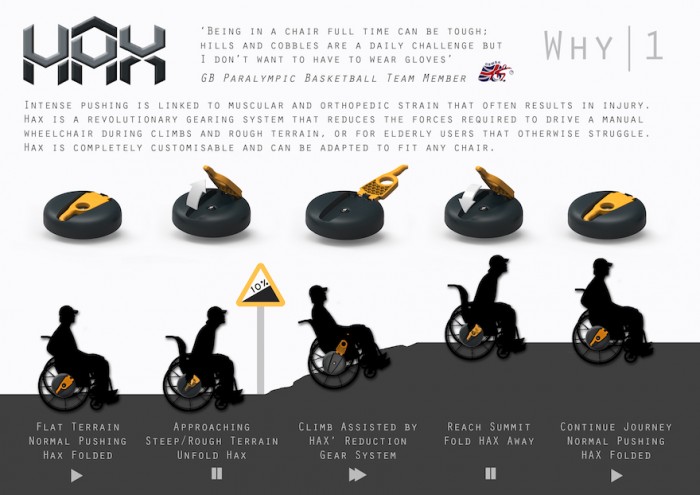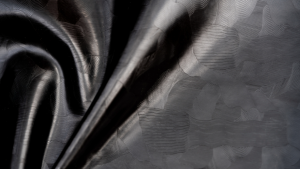A student in the UK has found a novel way to hack a wheelchair in order to make it easier for wheelchair users to tackle hills and slopes.
Called HAX, the low-friction reduction gearing system was one of the winners at this year's 2017 RSA Student Design Awards.
Thomas Dell, a University of Nottingham student, is behind the device that was named joint winner in the #HackOnWheels category. The category means that his design will form part of the #HackOnWheels library of designs.
He said that the #HackOnWheels brief appealed to him primarily due to its open source element, "the future of design lies in collaborating with users to create unique solutions engineered and customised to fit their specific needs".
The HAX system is designed to be customisable and adaptable to any wheelchair. Dell says coming up with the device was a natural progression for him as he was already interested in the design of sports equipment, particularly bicycles. He says he saw an opportunity to transfer some of his knowledge into developing assistive technology for wheelchairs. But adds that the social responsibility element to the student competition was also important to him, "having disabled friends helped me to understand the elements of daily life that they have struggled with and therefore inform my creative process in generating a solution that would make a genuinely positive impact.”
His research revealed that there were already some made-to-measure wheelchairs available on the market.
“As I wanted my device to offer something new and innovative, I decided to invent a ‘hack’ that could fit onto these existing chairs to further enhance their functionality and accessibility. HAX needed to be discrete and not interfere with normal operation of the wheelchair, so additive manufacture was made central to the design in order to maximise the scope for user customisation with just a few clicks in a CAD file. I wanted to hand over complete control of how their device looked, its ergonomic fit, the gear ratio to match their physical capabilities, how it would mount their individual chair, and even the colour.”
Dell says that design is central to our everyday lives, “we literally encounter thousands of products every single day so its essential that it’s done right. As a designer, I feel a growing responsibility to reach beyond just my own local sphere to broader issues of inclusive design, social responsibility and the effort to protect our environment”.







